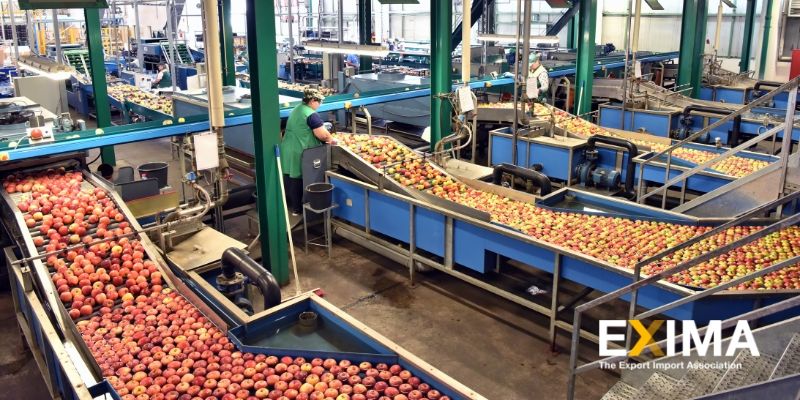The rising purchasing power of the global population has not only increased overall food consumption but also the demand for better nutritional products. Furthermore, the Covid-19 pandemic has pushed approximately 96 million people into food insecurity across 54 countries, according to the World Bank.
All of these factors have compelled nations to invest heavily in making agriculture more sustainable, as well as in establishing food processing units and reliable supply chains to meet not only ever-increasing domestic demands but also those of the global food trade.
The Importance of the Food and Agriculture Industries
The 2021 Food and Agriculture Industries Economic Impact Study reveals that the direct contribution of the food and agriculture industries to the US economy is around $2.7 trillion annually. Moreover, these two sectors combined employ 12.9 % of the workforce in the country, generate 10.67 million jobs downstream, and create an economic impact of $2,017.3 billion.
In all, 40.7 million Americans are directly or indirectly dependent on the food and agriculture industries and paid $2.04 trillion in wages and benefits. The study gives the overall global view and how the agriculture and food industries are playing a pivotal role in the GDP of all major countries.
Agricultural trade has grown exponentially over the last two decades, with traded food accounting for nearly 20% of all calories consumed globally. Due to rapid economic growth and a growing middle class, China, Korea, Japan, Russia, and Saudi Arabia account for 40% of total global food imports, while Argentina, Australia, Brazil, Canada, New Zealand, Thailand, and the US account for approximately 55% of total food net exports.

Strategic Projects of Big Food Exporters
Singapore and the UAE are thus making significant investments to become the most preferred global food logistics hubs. With an annual food trade of more than $27.2 billion, the UAE recently opened a major new food tech hub in Dubai to help the country meet its National Food Security Strategy 2051 targets and become a global food tech superpower. The goal is to use cutting-edge technology to boost food production and agriculture in the country.
Global food and agriculture industries have been severely impacted, prompting experts to propose the formation of a strong bloc of major countries within the WTO to facilitate multilateral trade negotiations and global market stability.
Moving forward, the major challenge will be to establish balanced trade systems that include developing countries in support of the UN's 2030 Agenda. The food and agriculture industries are fortunately on the verge of meeting the world's growing aspirations.
Stay in the Loop With EXIMA
If you found this article helpful, be sure to check out the rest of our Media Page today for more useful information!









